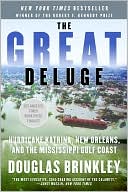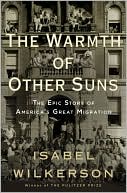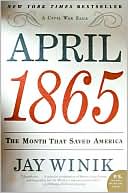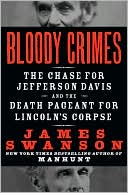The Great Deluge: Hurricane Katrina, New Orleans, and the Mississippi Gulf Coast
Search in google:
"I have no doubt that New Orleans will recover, in time, from Hurricane Katrina. But America as a nation will never get over what happened." --Douglas Brinkley In the span of five violent hours on August 29, 2005, Hurricane Katrina destroyed major Gulf Coast cities and flattened 150 miles of coastline. Yet those wind-torn hours represented only the first stage of the relentless triple tragedy that Katrina brought to the entire Gulf Coast from Louisiana to Mississippi to Alabama. First was the hurricane, one of the three strongest ever to make landfall in the United States--150 mile per hour winds, with gusts measuring more than 180 miles per hour ripping buildings to pieces. Second, the storm-surge flooding, which submerged a half million homes, creating the largest refugee crisis since the Civil War. Eighty percent of New Orleans was under water, as debris and sewage coursed through the streets, and whole towns in southeastern Louisiana ceased to exist. And third, the human tragedy of government mismanagement, which proved as cruel as the natural disaster itself. Ray Nagin, the mayor of New Orleans, implemented an evacuation plan that favored the rich and healthy. Kathleen Blanco, governor of Louisiana, tended to details but dithered in the most important aspect of her job: providing leadership in a time of fear and confusion. Michael C. Brown, the FEMA director, seemed more concerned with his sartorial splendor than the specter of death and horror that was taking New Orleans into its grip. In The Great Deluge, bestselling author Douglas Brinkley, a New Orleans resident and professor of history at Tulane University, rips the story of Katrina apart and relates what the category 3 hurricane was like from every point of view. The book finds the true heroes--such as Coast Guard officer Jimmy Duckworth, who oversaw the quick-thinking, lifesaving rescue efforts during the crucial first days of the crisis. And Tony Zumbado, the hurricane jock, who, in his role as an NBC videographer, first broke the stories of the anarchy at the convention center and the deaths at Memorial Hospital. Throughout the book, Brinkley lets the Katrina survivors tell their own stories, masterfully allowing them to record the nightmare that was Katrina. The Great Deluge investigates the failure of government at each level and breaks important new stories. Packed with interviews and original research, it traces the character flaws, inexperience, and ulterior motives that allowed the Katrina disaster to turn the Gulf Coast into a scene from a war movie or a third-world documentary. Publishers Weekly Historian Brinkley (Tour of Duty, etc.) opens his detailed examination of the awful events that took place on the Gulf Coast late last summer by describing how a New Orleans animal shelter began evacuating its charges at the first notice of the impending storm. The Louisiana SPCA, Brinkley none too coyly points out, was better prepared for Katrina than the city of New Orleans. It's groups like the SPCA, as well as compassionate citizens who used their own resources to help others, whom Brinkley hails as heroes in his heavy, powerful account-and, unsurprisingly, authorities like Mayor Ray Nagin, Gov. Kathleen Blanco and former FEMA director Michael C. Brown whom he lambastes most fiercely. The book covers August 27 through September 3, 2005, and uses multiple narrative threads, an effect that is disorienting but appropriate for a book chronicling the helter-skelter environment of much of New Orleans once the storm had passed, the levees had been breached, and the city was awash in "toxic gumbo." Naturally outraged at the damage wrought by the storm and worsened by the ill-prepared authorities, Brinkley, a New Orleans resident, is generally levelheaded, even when reporting on Brown's shallow e-mails to friends while "the trapped were dying" or recounting heretofore unreported atrocities, such as looters defecating on property as a mark of empowerment. Photos. (May) Copyright 2006 Reed Business Information.








